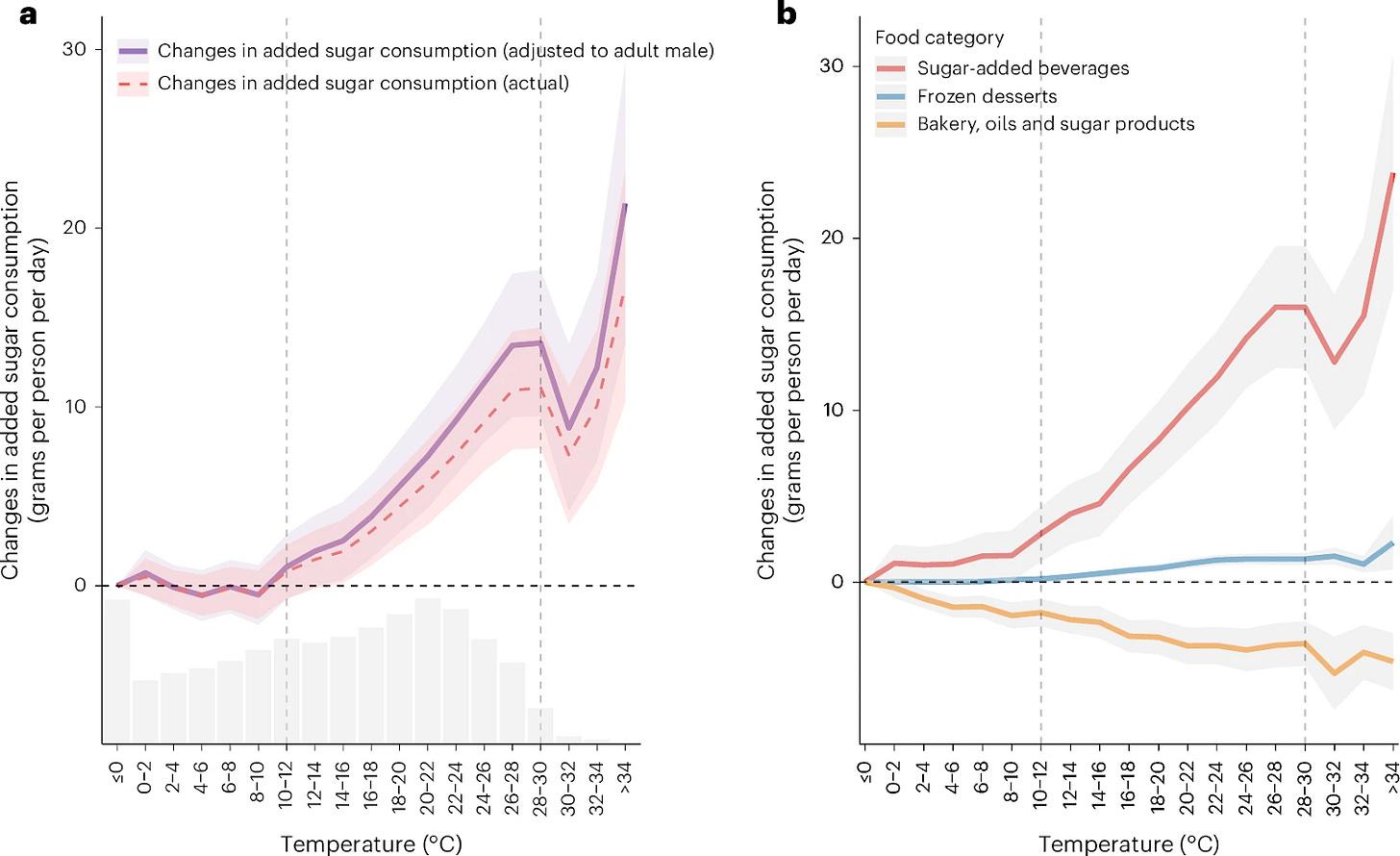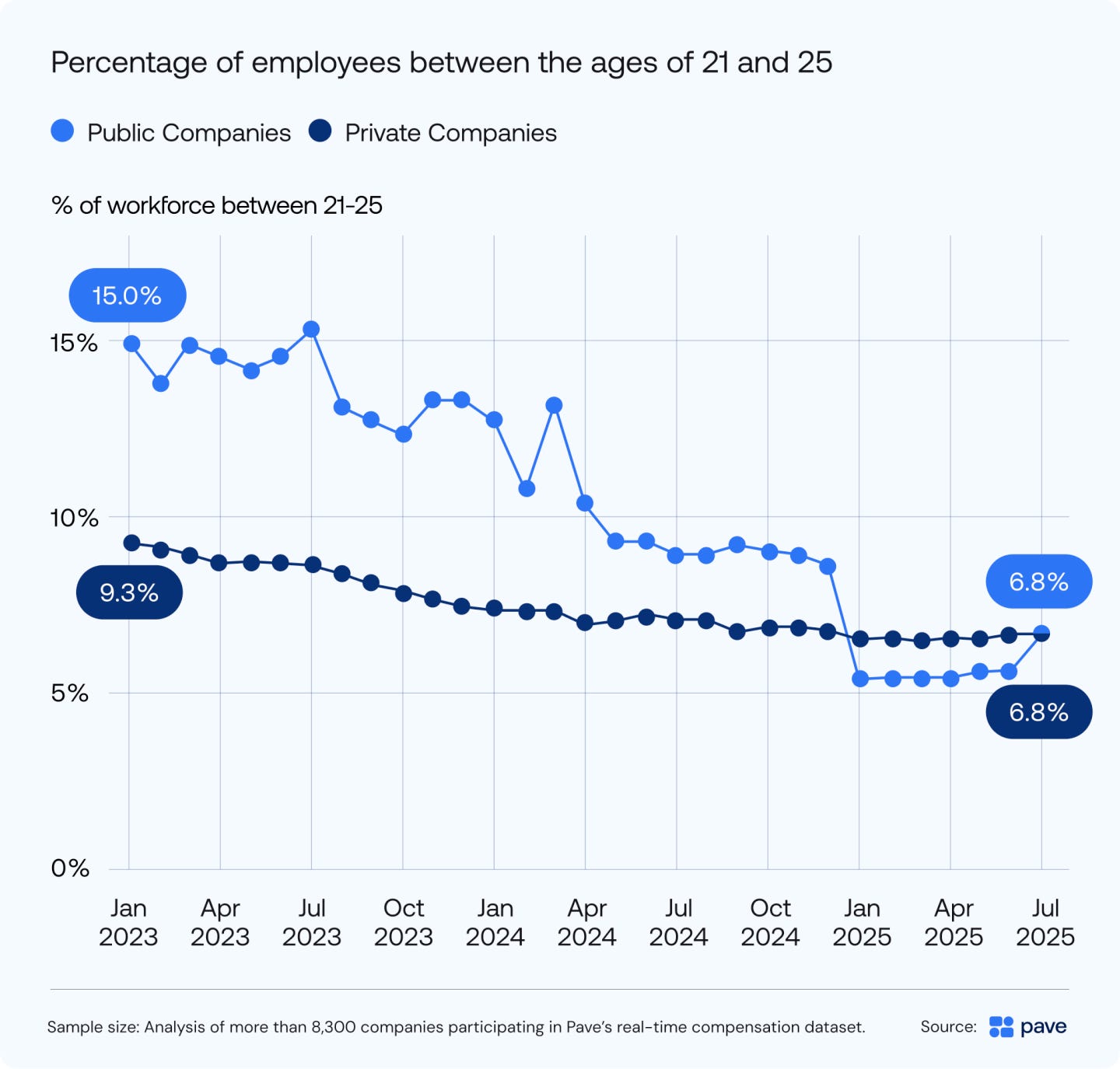🌀🗞 The FLUX Review, Ep. 206
September 11th, 2025

Episode 206 — September 11th, 2025 — Available at read.fluxcollective.org/p/206
Contributors to this issue: Justin Quimby, Neel Mehta, MK, Erika Rice Scherpelz
Additional insights from: Ade Oshineye, Alex Komoroske, Anthea Roberts, Ben Mathes, Boris Smus, Chris Butler, Dart Lindsley,Dimitri Glazkov, Jasen Robillard, Jon Lebensold, Julka Almquist, Kamran Hakiman, Lisie Lillianfeld, Melanie Kahl, Robinson Eaton, Samuel Arbesman, Scott Schaffter, Spencer Pitman, Wesley Beary
We’re a ragtag band of systems thinkers who have been dedicating our early mornings to finding new lenses to help you make sense of the complex world we live in. This newsletter is a collection of patterns we’ve noticed in recent weeks.
“Stay close to anything that makes you glad you are alive.”
— Hafez
🧑🎄❓ When the question changes the answer
“When will you admit that you’re wrong?” This is a classic loaded question: a question that presumes its own conclusion. Loaded questions are designed to trap the receiver into conceding a point just by responding.
Another type of tricky question is what we might call epistemic spoilers: questions that give something away and alter the answer’s context. Think of the classic: “Do you still believe in Santa Claus?” The very question implies Santa isn’t real. It’s not an open invitation to share. It’s a signal that the person asking has already moved on… and expects you to do the same.
Epistemic spoilers still come up for adults, although the “truth” they are revealing may not be as universally accepted. “You still believe you can make a difference?” “How can you believe this is really about justice?” “How do you justify staying here?” Each of these questions presumes a certain reality.
It’s not a coincidence that epistemic spoilers are often cynical… but not necessarily hostile. Still, even when shared in a spirit of warning or camaraderie, they shift the footing. They reveal something the asker sees as obvious and which the answerer may not be ready for. That asymmetry creates friction. The answerer has to catch up mid-conversation, often before they’ve fully processed the issue for themselves.
Epistemic spoilers change how any response will be perceived. They are a form of social pressure. What once felt like a reasonable answer can suddenly seem naive or out of touch. Especially in moments of asymmetry—parent to child, manager to employee—even an unintentional hint of what worldview is “correct” can shape how someone feels they’re allowed to answer.
These questions aren’t inherently bad. They can accelerate clarity by skipping past ambiguity. Sometimes that’s useful: if a family can’t afford gifts, it may be time to reveal that Santa isn’t real. Epistemic spoilers can also be useful when our goal is to apply some indirect social pressure. But these questions skip the slow work of reflection and deduction, leaving people confused, defensive, or prematurely pushed into agreement… which means they often backfire.
When we find ourselves on the verge of asking an epistemic spoiler, we should consider whether the question serves the moment. Questions define the terms of the exchange. If we want real discussion, it may be better to hold back. Not because the truth is fragile—but because understanding takes time. Sometimes the most respectful question is the one we wait to ask.
📖⏳ Worth your time
Some especially insightful pieces we’ve read, watched, and listened to recently.
The Paths and Loops We Miss: Complexity Lessons From The World Ahead 2025 (Manlio De Domenico) — Argues that many of the “confident projections” about AI that The Economist made last year in its annual The World Ahead report have already fallen apart. The problem, in the author’s view, was that The Economist’s “linear forecasts” overlooked some classic complex-systems concepts (feedback loops, emergence, and path dependency) that drive unexpected interactions. For instance, the Economist didn’t predict the rapid scale-out of renewable and nuclear energy to feed LLMs because it treated renewables and AI as parallel trends without recognizing how they could feed on each other. Another example: the report predicted the first-order inflationary impacts of tariffs but missed the positive feedback loop that came from the “retaliatory cascade.”
Expected-Utility Maximizers Don’t Maximize Utility (Ergodicity Economics) — Observes that, if you’re playing a repeated financial game (like investing or gambling), trying to maximize expected wealth will paradoxically lead you to lose wealth in the long run. That’s the fundamental insight of ergodicity: when each step in a repeated game carries the risk of ruin (i.e. losing all your money), expected-value theory doesn’t work anymore. Though this piece is quite technical, you can get the gist of it even while skipping the calculus.
A Universal Rhythm Guides How We Speak (Phys.org) — Shares new linguistics research that finds that, across many world languages, humans tend to split their speech into 1.6-second “rhythmic chunks.” The trend was independent of languages’ syllable speed and structure, pointing to a cognitive pattern built into the brain. The researchers hailed this finding as a way to “bridge neuroscience, linguistics, and psychology” and believe it could help with everything from AI speech to treating speech disorders.
A Python App for Analyzing Immigration Enforcement Data (Ari Lamstein) — A data scientist created an open-source app to visualize changes in American immigration enforcement; this data came from an organization named TRAC, who got it from ICE via FOIA requests. The blog post examines some notable trends in a few of the graphs.
🛣️🚩 Signposts
Clues that point to where our changing world might lead us.
🚏🍭 Americans are eating more sugar as the climate warms
A new study found that Americans consume 2 grams of added sugar when it’s 54ºF (12ºC) but a huge 15 grams at 86ºF (32ºC), primarily driven by people reaching for sugary sodas when it’s hot outside. The effect was more pronounced among men, people with lower incomes, those with less education, and those who work outside. These groups already have worse health outcomes, and scientists worry that the increased risk of diabetes and obesity as the climate warms could make things even worse.
🚏🧑💻 The fraction of young employees in big tech has been cut in half
From January 2023 to July 2025, the percent of employees at public tech companies aged 21–25 collapsed from 15.0% to just 6.8%; the trend was weaker but ran in the same direction (9.3% down to 6.8%) for private tech companies. During this time, the average age of a public tech company employee rose from 34.3 years to 39.4 years. The rise of AI and automation (which disproportionately hits entry-level workers) is a commonly cited cause, but the increase in layoffs and return-to-office mandates may also be making tech jobs less attractive to young workers to begin with.
🚏 Finland built a 2,000-ton sand battery
Storing excess renewable energy at scale can be tricky: lithium-ion batteries, for instance, are expensive and prone to degradation. But engineers have realized that you can store a lot of energy in cheap everyday objects, like by lifting huge concrete blocks (thus converting electric energy to gravitational potential energy) or simply pumping water uphill. A team of Finnish engineers are now deploying a new method: heat up a huge pile of sand to 932 ºF (500 ºC). The sand stays hot for 3 months or more, and the heat can be easily transferred to heat homes and factories. They’ve just inaugurated a 100 MWh sand battery in southeastern Finland: it’s “a 42 foot tall, 50 foot wide steel cylinder filled with 2,000 tons of crushed stone” where excess renewable energy can be stored.
🔮📬 Postcard from the future
A ‘what if’ piece of speculative fiction about a possible future that could result from the systemic forces changing our world.
// September 24, 2036.
// A parent whose child recently died of measles opens the news and reads.
From the desk of President Hayes:
In San Francisco, under the leadership of demagogic extremists, disorderly mobs have deliberately prevented the carrying out of proper orders from a Federal Court. Local authorities have not eliminated that violent opposition.
Whenever normal agencies prove inadequate to the task and it becomes necessary for the Executive Branch of the Federal Government to use its powers and authority to uphold Federal Courts, the President's responsibility is inescapable. In accordance with that responsibility, I have today issued an Executive Order directing the use of troops under Federal authority to aid in the execution of Federal law.
The very basis of our individual rights and freedoms is the certainty that the President and the Executive Branch of Government will support and insure the carrying out of the decisions of the Federal Courts, even, when necessary with all the means at the President's command.
The Supreme Court of the United States has decided that separate public educational facilities for the vaccinated and unvaccinated are inherently unequal and therefore compulsory vaccination segregation laws are unconstitutional.
Mob rule cannot be allowed to override the decisions of the courts.
And so, with confidence, I call upon citizens of the State of California to assist in bringing to an immediate end all interference with the law and its processes. If resistance to the Federal Court order ceases at once, the further presence of Federal troops will be unnecessary and the City of San Francisco will return to its normal habits of peace and order.
// Taken almost verbatim from the Sept 24, 1957 press release from the desk of President Eisenhower regarding school integration in Little Rock, Arkansas
© 2025 The FLUX Collective. All rights reserved. Questions? Contact flux-collective@googlegroups.com.


